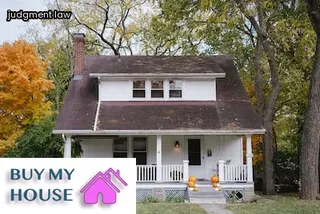Evictions in Colorado can be a long and arduous process for landlords to go through, depending on the situation. All landlords must follow the steps outlined by Colorado law during an eviction, which include providing proper notice to the tenant, filing a summons and complaint with the court, and attending a hearing if one is requested.
Each step can take anywhere from several days to several weeks or even months, depending on the complexity of the case and other factors. In addition to understanding each step of the eviction process in Colorado, it is important for landlords to be familiar with their local laws regarding evictions as these can vary from county to county.
Understanding all of these requirements before beginning an eviction will ensure that the process runs smoothly and efficiently.

In Colorado, a landlord may initiate the eviction process for a variety of reasons.
Most commonly, tenants are evicted for non-payment of rent; however, other common causes include violating rental agreements or leases, failing to vacate at the end of a lease term, engaging in criminal activity on or near the property, and creating a nuisance on the premises.
In addition to these more frequently seen reasons, landlords may also evict tenants for subletting without permission, using the property for illegal activities or purposes not specified in the lease agreement, and significantly damaging the property itself.
It is important to note that it is illegal for landlords to begin an eviction due to discrimination based on race, gender, religion, national origin or disability.
When it comes to filing a complaint in the Colorado eviction process, knowing when and how to do it is key. As a landlord, you need to follow the state's specific laws and regulations, which can be found on the Colorado Judicial Branch website.
Before you file a complaint, make sure you understand what constitutes an illegal eviction according to Colorado law and that your tenant has violated one or more of those laws. It's also important to double-check that your lease agreement hasn't expired - if it has, then the eviction process won't be necessary.
If the tenant is in violation of their lease agreement, whether for non-payment or other reasons, then you should consult with an attorney who specializes in landlord/tenant law before taking any legal action. After gathering all relevant information and consulting with an attorney, you can decide if filing a complaint is necessary as part of the eviction process.

When it comes to serving a tenant with a notice to comply, landlords in Colorado have several effective ways to do so. The most common way is by personal service, which requires a landlord or their representative to personally deliver the documents to the tenant.
A landlord may also proceed with substituted service or post and mail, whereby copies of the documents are sent to the tenant's last known address and posted in an easily visible place on the rental property. In some cases, a landlord may be able to serve the documents via publication if they are unable to locate their tenant.
No matter which method is used, all notices must include information about how long tenants have before they must comply with the notice or face eviction proceedings.
When asking for possession of a property in Colorado, it is important to understand the eviction process and timeline. Landlords should first become aware of the Colorado Statutes on landlord-tenant law.
According to the law, tenants must receive written notice of the eviction at least three days prior to the court hearing where landlords can request possession of their rental property. If tenants choose not to leave after they have received this notice, then landlords may file paperwork with their local county court to start an eviction proceeding.
During this time, landlords must include information such as their name, address, and contact info; tenant’s name and address; and a copy of the notice given to tenants. Once all necessary paperwork has been filed and accepted by the court, landlords will be notified when their court hearing date is scheduled.
At this hearing, both parties are allowed to present evidence regarding why or why not possession should be granted. Afterwards, a judge will issue an order which will determine whether or not possession is granted.
If it is granted, tenants have up to five days to vacate the property and any remaining belongings must be returned within seven days after that date. It is important for landlords in Colorado to understand these laws before requesting possession in order to ensure a smooth transition for everyone involved in the eviction process.

When it comes to getting possession quickly and easily during the Colorado eviction process, there are certain strategies that landlords can utilize. One of the most effective approaches is to start the process as soon as possible.
Delays in starting the eviction process can lead to a longer time for tenants to vacate. Additionally, landlords should ensure that all paperwork is filled out properly and is up-to-date before filing with the court system.
Working with an experienced attorney who is familiar with local regulations can help avoid costly mistakes during this step of the process. Landlords should also be prepared to move forward quickly once they receive notice from the courts.
Following up on any outstanding issues or requests right away will help speed up completion of the eviction process so that possession of rental properties can be granted as soon as possible.
Knowing the timeline of an eviction in Colorado is essential for landlords to understand. The process starts with serving the tenant with a written notice, which must include information about the violation and how it can be remedied.
After this, the tenant has three days to respond or vacate the property. If they do not comply within this time frame, then the landlord may file an eviction suit with a court clerk.
The court will then issue a summons to both parties and set a hearing date. At the hearing, both parties can make their arguments and present evidence before the judge makes their decision.
Once this has been made, if it is in favor of the landlord, they will be issued a writ of restitution that allows them to repossess the property from the tenant. However, it is important to note that even after this point, there may be additional steps required depending on individual circumstances.

In Colorado, landlords must provide legal evidence to prove that an eviction is appropriate. This evidence can include unpaid rent, destruction of property, or lease violations.
Landlords are responsible for filing the eviction with the court, serving the tenant a summons and complaint in person or by mail, and providing any necessary proof of their case. The evidence should include copies of rent invoices, any relevant photographs or videos, a copy of the original lease agreement, and other documents that demonstrate why the tenant has violated the terms of their lease.
It's important for landlords to be aware of what types of evidence they need to present in order to successfully win an eviction case as it can help expedite the process and ensure that they get a favorable outcome.
For Colorado landlords, there are a variety of free resources and guides available to help navigate the eviction process. Understanding the legal details of an eviction can be difficult and time-consuming, so it is important to have access to reliable information.
From sample notices to downloadable forms, these resources provide a comprehensive overview of the process and timeline for when an eviction should occur in Colorado. Additionally, some of these guides explain the rights and responsibilities of both tenants and landlords throughout the entire eviction procedure.
With access to these free resources and guides about Colorado evictions, landlords can be informed about how long does the Colorado Eviction process take.

DoorLoop's tools are designed to help landlords streamline their processes and save time. With automated notifications, easy-to-use online forms, and the ability to store important documents in the cloud, DoorLoop simplifies the eviction process in Colorado.
Not only can landlords access the forms they need quickly and easily, but they can also reduce their processing time by eliminating manual paperwork. DoorLoop provides a comprehensive guide which outlines the duration of each step in the eviction process.
This allows landlords to accurately estimate how long it will take them to complete an eviction, helping them plan ahead and better manage their properties. It's never been easier for Colorado landlords to understand and navigate the eviction process – DoorLoop gives them all they need to make sure they stay on top of every step.
DoorLoop is a comprehensive online resource that helps landlords navigate the eviction process in Colorado. It offers a simple and straightforward approach to understanding the intricacies of the eviction process, including an estimate of how long the entire process can take.
With DoorLoop, landlords can quickly and easily access all of the information they need to successfully complete their eviction. Additionally, DoorLoop provides support throughout the entire process, from getting started to final execution.
For those who would like to explore what DoorLoop has to offer and get a better understanding of how it can help with evictions in Colorado, request a demo today!.

When signing up for DoorLoop Services, it is important to understand the terms and conditions that apply. The first step is to make sure you are familiar with your local laws regarding evictions.
In Colorado, landlords must follow the Colorado Revised Statutes Title 13 Landlord-Tenant. This document outlines the steps of an eviction process including how long it takes.
You should also be aware of any additional regulations or ordinances in your local municipality which may further impact the process. Additionally, DoorLoop Services requires that all landlords sign a contract prior to using their services which will include details such as service fees and timelines for completion of tasks.
It is also important to review the contract carefully and ensure that you understand all the terms and conditions associated with using DoorLoop Services before agreeing to use them. Lastly, while DoorLoop Services can help expedite the eviction process, there are some tasks that only a landlord can complete such as filing legal paperwork in court, so be sure to factor this into your timeline as well.
The Colorado eviction process typically takes multiple steps and requires a landlord to be familiar with the state's rules, forms, and procedures. To begin an eviction, a landlord must provide written notice that informs the tenant of their violation of their lease agreement.
The notice must include the amount of rent owed, how much time they have to pay it, and other details such as whether they must move out or if they can remain in the rental unit. After the landlord provides notice, the tenant has three days to respond.
If the tenant does not respond or refuses to comply with the notice, then a complaint must be filed with the court. Once this is done, a summons will be issued and served to the tenant informing them of an eviction hearing date.
The tenant can choose to appear at this hearing and explain why they should not be evicted; however, if no defense is presented or adequate payment is not made for past due rent, then a judgment may be entered against them. This document will give the landlord permission to remove any delinquent tenants from their property through self-help measures or sheriff’s assistance if necessary.

The Colorado eviction process for terminating a tenancy for cause begins by writing and issuing a notice for termination. The landlord must provide the tenant with written notice that outlines the reasons for the termination and the date on which the tenancy will end.
Depending on the cause of termination, such as failure to pay rent or violation of other aspects of the lease agreement, specific language regarding this must be included in the notice. Additionally, if applicable, landlords must provide tenants with an opportunity to cure their breach before they file an eviction action.
It is important to ensure that all notices are in compliance with state laws and local ordinances. In Colorado, landlords can terminate a rental agreement without cause but it requires giving more advance notice than when terminating for cause.
Estimating the amount of time it takes to go through the eviction process in Colorado can be confusing and overwhelming. Fortunately, there are some tips that landlords can use to help estimate how long the process will take, as well as ways they can save time while still making more money.
A key benefit of putting your portfolio online is that you can quickly access all the necessary information during an eviction process and stay up-to-date on what documents need to be filed. Additionally, understanding your rights as a landlord under Colorado law will help you make better decisions when it comes to filing for an eviction.
Knowing what is legally allowed will ensure that any action taken is within legal bounds and significantly reduce the amount of time spent on the eviction process.
In Colorado, the eviction process can take anywhere from a few days to several weeks depending on the situation. The fastest an eviction can happen is when a tenant has not paid rent and the landlord serves them with a 3-day notice to pay or vacate.
If they do not pay within 3 days, the landlord can file an Unlawful Detainer action with their local court and receive a hearing date within 10-14 days. If the judge finds in favor of the landlord, they will be granted an order of possession that allows for immediate removal of the tenant.
In some cases, it can take even longer if the tenant is able to argue their case or delay proceedings through various legal tactics. Landlords should consult experienced legal counsel if they are unsure about any aspect of Colorado's eviction process and take all necessary steps to ensure their rights are protected.

The eviction process in Colorado is not a fast one. Depending on the circumstances, it can take anywhere from two weeks to several months for landlords to get an eviction notice served to their tenants.
Landlords must first provide the tenant with proper written notice of the violation and give them time to correct the issue or vacate the premises. If the tenant does not comply, then landlords must file an eviction action with their local court and serve the tenant with a summons and complaint.
The court will then set a hearing date, which can be anywhere from two weeks up to two months later. After that, if the landlord wins at trial, they must wait for a writ of possession before they can take further action against the tenant.
Ultimately, it can take anywhere from two weeks up to several months for landlords to get an eviction notice served in Colorado.
If you are a landlord in Colorado, you may find yourself needing to evict a tenant at some point. When this happens, it is important to understand the Colorado eviction process and what steps must be taken in order for your eviction to be completed.
Receiving an eviction notice is the first step of the process. This notice informs tenants that they have violated their lease agreement and that they must take certain actions or face eviction.
In Colorado, landlords must provide tenants with a 3-day Notice to Quit or Pay Rent, which outlines the violation and gives tenants three days to address the issue before the landlord can file for an eviction. If tenants are unable to comply with the notice in time, then landlords must file an Unlawful Detainer lawsuit with their local court, which officially begins the eviction process.
After filing an Unlawful Detainer lawsuit, landlords will need to serve the tenant with a Summons and Complaint within five days of filing. This document explains why they are being evicted and gives them additional time (usually around 10-14 days) to respond by either moving out or contesting the case in court.
Rent is an important part of any lease agreement and it's the responsibility of the tenant to pay rent on time. Colorado law states that tenants must pay rent when it's due or face possible eviction.
But how long can a tenant go without paying rent in Colorado before an eviction process begins? It depends on the terms of the lease, but typically landlords must give at least 3-day written notice to tenants before starting an eviction process in Colorado. If the tenant still doesn't pay after this notice period, then they may be evicted without further warning.
It's important for landlords to understand the laws governing evictions in order to ensure that their rights are protected and that they follow all legal procedures when evicting a tenant.
A: The eviction process can take anywhere from two to four weeks before entering a judgment.
A: The length of time required for the eviction process in Colorado can vary greatly depending on the circumstances, but generally it can take between two to four weeks with the help of lawyers.

A: The eviction process can take up to three weeks from the time Property Management gives notification of default to when a Default Judgment is entered.
A: The eviction process for month-to-month renters in Denver County, Denver, Colorado typically takes between two to three months before entering a judgment.
A: The eviction process can vary, but usually takes several weeks from start to finish. This includes serving the tenant with the proper legal notices, filing the complaint in court, and waiting for a response from the tenant. After that, it can take up to two months for a judge to enter a judgment.

A: Generally, the eviction process in Colorado can take anywhere from 2 to 6 weeks before engaging in Forcible Entry.
A: In Colorado, an eviction process typically takes between 4 and 8 weeks from the time of filing until a Summary Judgment is entered. This includes time for serving notice to the tenant, filing the complaint with the court, waiting for a hearing date, and entering the judgment.
A: Generally, the eviction process can take anywhere from 1-2 months with the assistance of a mediator in Colorado.

A: The length of the eviction process in Colorado is typically determined by the nature of the dispute between the landlord and tenant. If the tenant has defaulted on payment or committed damages or illegal activity, then a landlord can usually proceed with an expedited process that can be completed within a few weeks. However, if there is no immediate breach of contract, then it can take up to three months for law enforcement to serve notice and begin proceedings.
A: Typically, the eviction process in Colorado takes between 1-3 weeks before a Notice to Quit is issued.